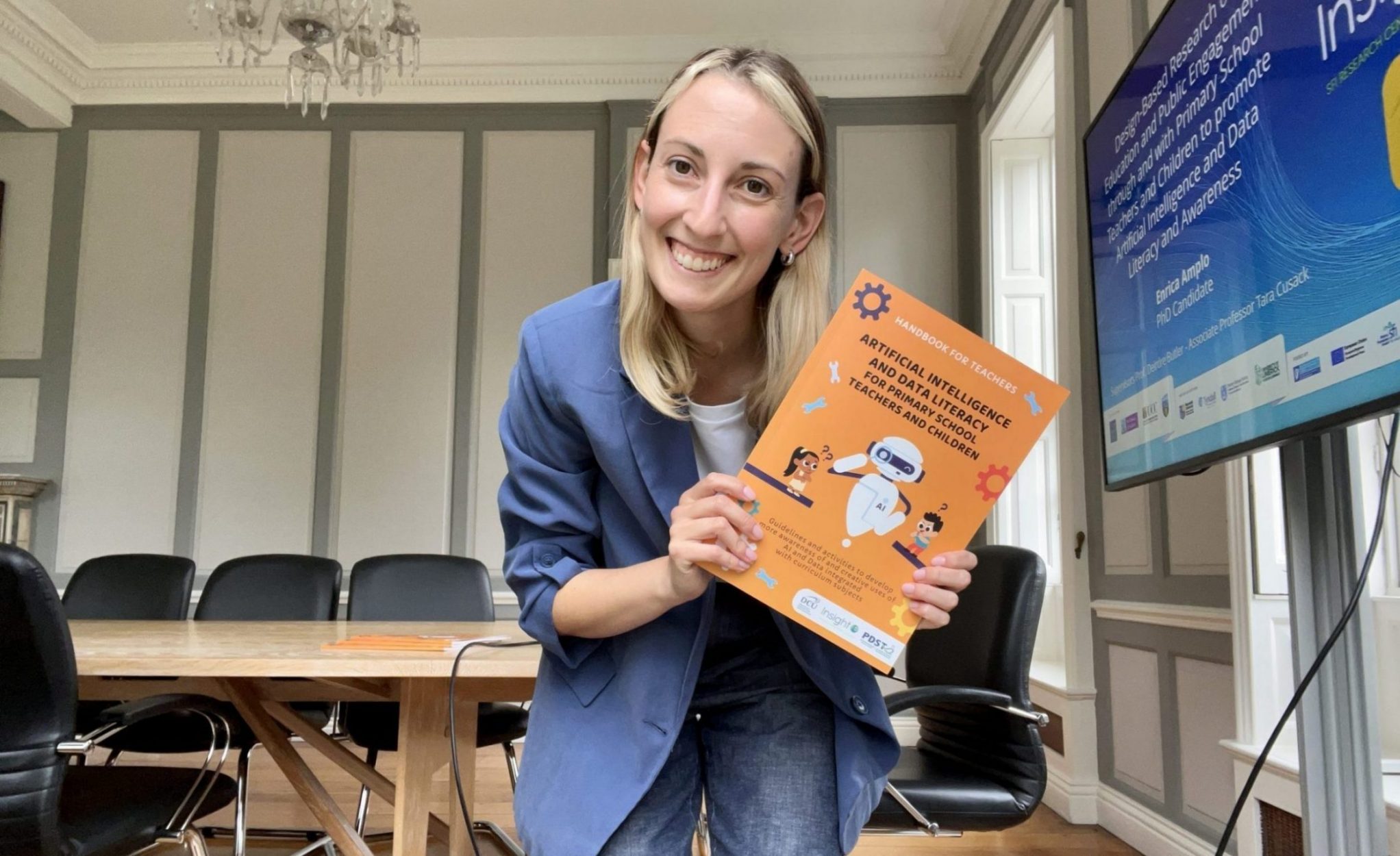
The TeachingAI.eu project is part of an Education and Public Engagement study with the aim of empowering teachers in promoting learning opportunities for children to develop key competencies and awareness of emerging technologies.
It is the outcome of Enrica Amplo’s PhD thesis with the Insight SFI Research Centre for Data Analytics and DCU Institute of Education. This study was supervised by Professor Deirdre Butler (DCU) and co-supervised by Associate Professor Tara Cusack (UCD) and Professor Tomas Ward (Director, Insight at DCU) as an independent panelist. It is the result of a great work of cooperation between academia, research, and school as Enrica and her supervisor Prof Deirdre Butler partnered with a group of teachers and teacher advisors from PDST (Professional Development Service for Teachers) as part of a learning programme on AI.
According to the UNICEF Policy guidance on AI for children, 2020;
“Ensuring participation means that children are given agency and opportunity to shape AI systems and make educated decisions on their use of AI and the impact that AI can have on their lives. All children should be empowered by AI and play a leading role in designing a responsible digital future for all.”
TeachingAI.eu resources were co-created to address the urgency of supporting teachers in their efforts to engage children in relation to AI and data literacy. The idea of working with students in classrooms to develop their competencies in information and computer technology is not new. Seymour Papert as far back as 1980 highlighted the importance of introducing computational thinking in school to support children in being active and critical users of the technology rather than letting “the computer programming the child”. However, the education system still struggles to understand how to integrate technological knowledge, use, and awareness, in the standard curriculum with the other subjects and to focus on digital learners rather than digital natives.
Dr Enrica Amplo, lead researcher says;
“I am very proud to see the project come to life. This journey started in 2019 before the hype on AI in education interest we are witnessing now after generative AI tools were introduced to the public. So with this PhD, we were kind of trailblazers in AI literacy. I am really thankful to the PDTS teachers associates and advisors I co-designed with, for their incredible expertise and support. And to pre-service teachers from DCU and Università Cattolica del Sacro Cuore in Milan (with Prof. Claudio Giannetti, Prof. Stefania Pagliara, and Federico Colombo). They are in fact students who will be teachers soon and they really surprised me with their deep interest and developing awareness of the importance that their role represents for children and for the whole of society in the era of AI.”
Project supervisor Dr Deirdre Butler says;
“At DCU’s Institute of Education we have the mission of helping to prepare a new generation of teachers who will help to develop learners who are curious, capable and confident of engaging with diverse types of technologies which surround them every day so that they can become an active participant in a connected society that is becoming increasingly complex.
To live, work and thrive in such a society demands an ever-increasing understanding of digital technologies, particularly new and emerging technologies such as Artificial Intelligence. All individuals need to be able to be in a position to be in control of these technologies rather than being “controlled” by them. So engaging with the materials and resources developed by Enrica enables teachers and students to begin to develop an awareness and understanding of the big ideas of AI.”
Being born into a digital era can justifiably lead to students being called digital natives but it does not follow that they are digital learners. Being a digital learner does not only mean using technology and understanding technology, it is more than that. Being digital learners means being learners in an era where technology is used and understanding how it affects our lives. It means having the opportunity to learn how technology works and how to use technology to enhance creativity and critical thinking, encourage collaborative real-world problem-solving, and empower ethical, critical, and aware choices and actions.
Therefore, now more than ever it is paramount to engage children in quality learning opportunities that enable them to discover emerging technologies, understand how they work, what their implications are on our lives, and how we can use them for good. AI is also now part of the DigiComp 2.2, the EU digital competence framework for citizens updated revision where the importance of aware interaction with AI is now acknowledged.
TeachingAI.eu is an online think-tank for primary school teachers, educators, and anyone willing to actively and creatively engage children to promote Artificial Intelligence (AI) and Data literacy and awareness. The online resources include expert interviews, and a free handbook for teachers with activities and templates designed to engage children actively and creatively in exploring how AI works. From design-based learning to AI and Data fundamentals, this initiative seamlessly integrates workshops into primary school subjects. It paves the way for a brighter, more informed future, where our children will confidently navigate the complexities of AI and Big Data, ensuring they can shape a world driven by knowledge and innovation.